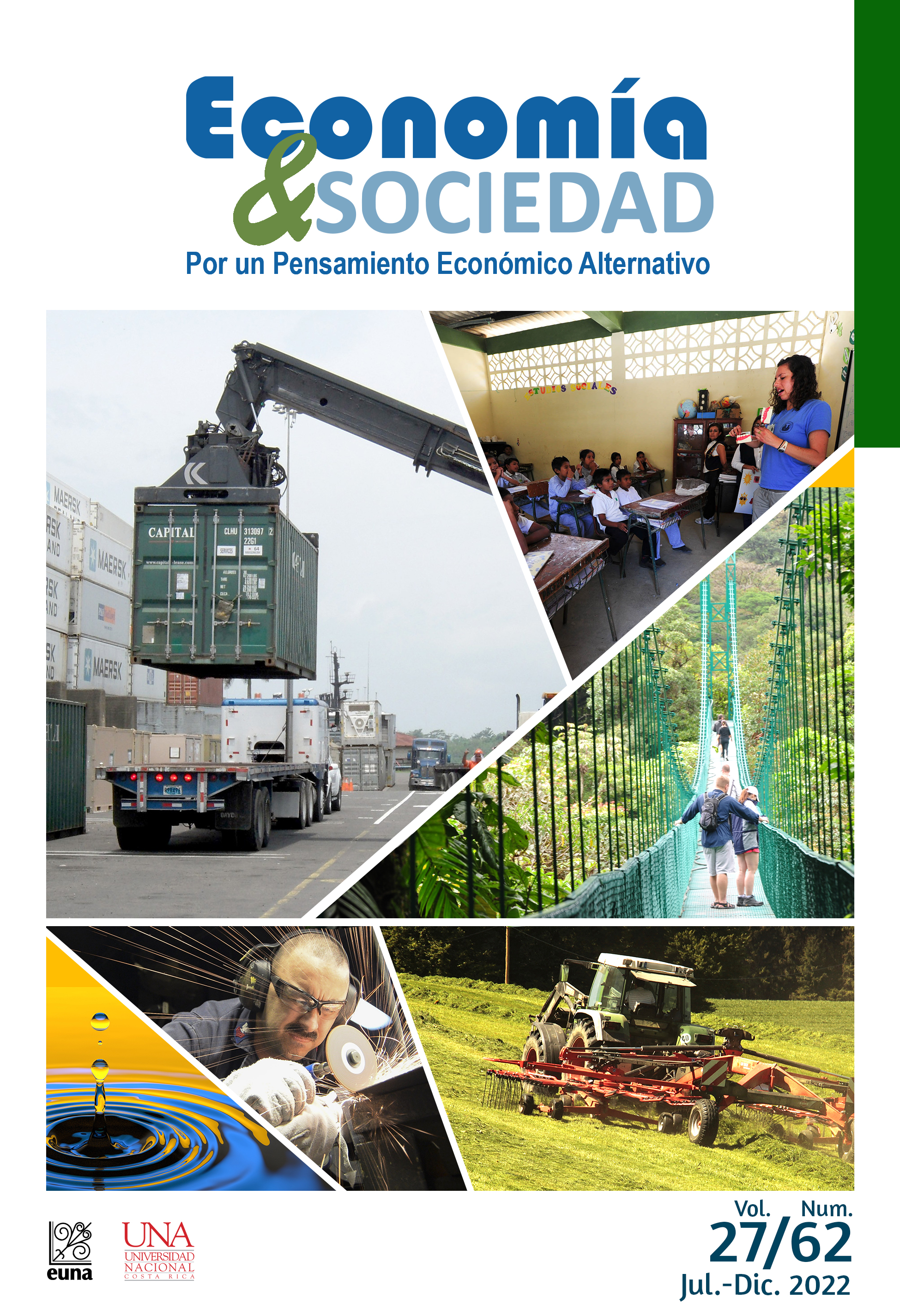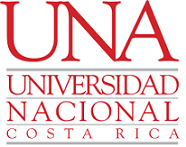Resumption of Economic Growth or ‘Tail wind’? A Comparison between Brazil’s Post-neoliberalism and Mexico’s Neoliberalism (2003 - 2015)
DOI:
https://doi.org/10.15359/eys.27-62.2Keywords:
development, progressivism, Latin America, commodities, terms of tradeAbstract
This article synthesizes part of the results of research on the political and economic dynamics from Brazil and Mexico between 2003 and 2015, comparing progressive governments in the first case and neoliberal governments in the second. This article seeks to determine to what extent their different growth rates were either due to a favorable external context (marked by the rise of commodities exported by the region) or the result of discrepancies in the policies applied. The economic regulation implemented in each case is characterized, and the impact of the variation of their terms of trade on their economic performance is considered. Conclusions indicate that there were significant differences in the policies of each government; however, their differences in terms of economic growth have external origins.
References
Banco do Brasil (s.f.). Bancos públicos superam os privados em lucro e tamanho. http://www.aafbb.org.br/index.php/bancos-publicos-superam-os-privados-em-lucro-e-tamanho/
Bresser-Pereira, L. C. (2013). Empresários, o governo do PT e o desenvolvimentismo. Revista de sociologia e política, 21(47), 21-29.
Bulmer-Thomas, V. (1998). La historia económica de América Latina desde la Independencia. FCE.
Cardero, M. E. (2013). ¿Es posible hacer política industrial en el marco de la OMC y del TLCAN? En Arturo Oropeza García (coord.), México frente a la tercera revolución industrial (437-468). IDIC.
De León Naveiro, O. (2017). Evolución económica y estrategias de desarrollo en América Latina. En Sotillo, J. A. y Ayllón, B. (coords.), Las transformaciones de América Latina (pp. 34-68). Catarata/IUDC.
De Paula, L. F., Oreiro, J. L. & Basilio, F. (2013). Estrutura do setor bancário e o ciclo recente de expansão do crédito: o papel dos bancos públicos federais. Nova economia, sept./dic., 23 (3), Belo Horizonte.
Guillén, A. (2012). México, ejemplo de las políticas anti-desarrollo del Consenso de Washington. Estudos avançados, 26 (75).
LópezObrador.org. (2019). Petróleo. https://lopezobrador.org.mx/temas/petroleo/
Ministério das Relações Exteriores do Brasil. (2015). Bolsa Família repassa R$2,3 bilhões para quase 50 milhões de brasileiros. http://www2.planalto.gov.br/noticias/2015/05/bolsa-familia-repassa-R-2-3-bilhoes-para-quase-50-milhoes-de-brasileiros
Moreno, J. C., Rivas, J. C., & Santamaría, J. (2005). Mexico: Economic growth exports and industrial performance after NAFTA. CEPAL - Serie Estudios y perspectivas, n.° 42.
Palazuelos, A. (2000). Introducción a la realidad económica latinoamericana. En Harto de Vera, F. (ed.), América Latina: Comunicación y globalización. La Catarata.
Pereira, F. (2011). Vitórias na crise: trajetórias das esquerdas latino-americanas contemporâneas. Ponteio.
Prebisch, R. (1949). El desarrollo económico de la América Latina y algunos de sus principales problemas. CEPAL. http://prebisch.cepal.org/es/
Romero, J. (2016). Política industrial: única vía para salir del subdesarrollo. Economía Informa, marzo-abril, n. 397.
Schorr, M. (2012). Argentina: ¿Nuevo modelo o ‘viento de cola’? Nueva Sociedad, enero-febrero, 237.
Secretaría de Economía de México. (2006). Decreto para el Fomento de la Industria Manufacturera, Maquiladora y de Servicios de Exportación. http://www.2006-2012.economia.gob.mx/comunidad-negocios/industria-y-comercio/instrumentos-de-comercio-exterior/immex
Vadell, J. & Neves, P. (2013). O pós-neoliberalismo na América do Sul: inserção internacional e desafios do desenvolvimento. Em Gaitán y Del Rio (orgs.), Instituições, política e desenvolvimento: América Latina frente ao século XXI. CRV.
Villafañe, V. L. (2013). ¿Es posible relanzar una política industrial en el marco global? El caso de México. Revista del Instituto de investigaciones jurídicas de la UNAM. www.biblio.juridicas.unam.mx
Williamson, J. (2004). The Washington Consensus as Policy Prescription for Development. Institute for International Economics.
Zunino, A. (2022). Comparando el acuerdo de clases neo-desarrollista en Brasil con el acuerdo neoliberal de México (2003-2015). Polis Revista Latinoamericana, 21(61), 186-208. http://dx.doi.org/10.32735/S0718-6568/2022-N61-1613
Downloads
Additional Files
Published
How to Cite
Issue
Section
License

This work is licensed under a Creative Commons Attribution-NonCommercial-ShareAlike 4.0 International License.
This publication is subject to the Creative Commons License; therefore, its attributions and restrictions must be respected.
Authors publishing in this Journal accept the following conditions:
- Authors retain copyright ownership and give the Journal first publication right of the paper, which is registered with the Creative Commons Attribution-NonCommercial-ShareAlike 4.0 International License. This license allows third parties to use the published work provided it is sourced as firstly published in this Journal.
- Authors may enter into other independent and additional contractual agreements for the non-exclusive distribution of the article published in this Journal (e.g., to be included in an institutional repository or published in a book) provided it is clearly stated that the work was published in this Journal for the first time.
- Authors are allowed and recommended to publish their work on the Internet (for example, on institutional or personal pages) before and during the review and publication process, as it can lead to productive exchanges and a greater and faster dissemination of work published.

The Economía & Sociedad Journal, published by Universidad Nacional, is licensed under a Creative Commons Reconocimiento-NoComercial-CompartirIgual 4.0 Internacional License. Based on http://www.revistas.una.ac.cr/index.php/economia.








